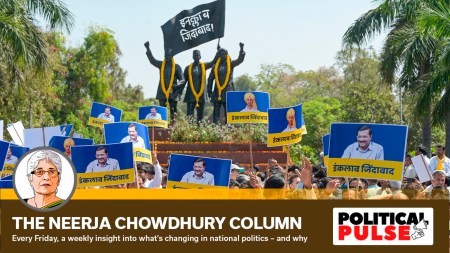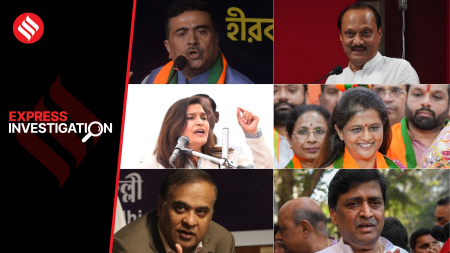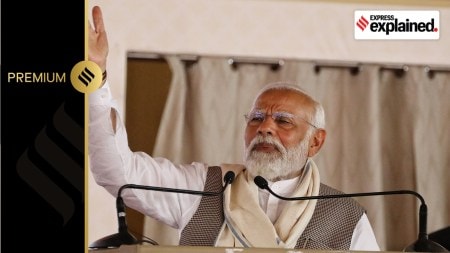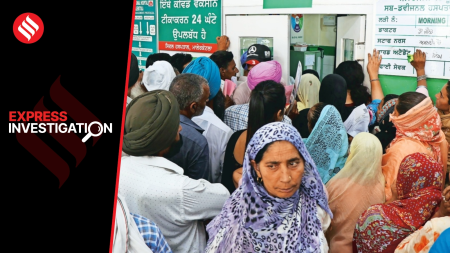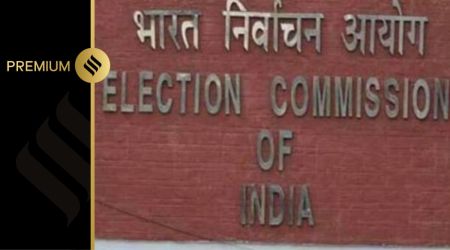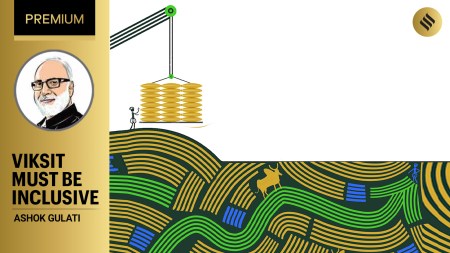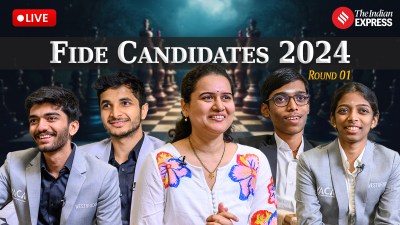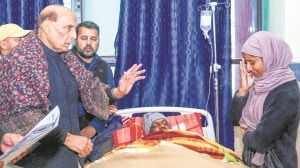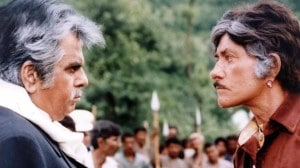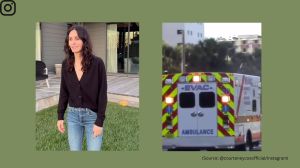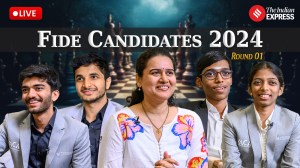- India
- International
At 28, techie survives four brain strokes: Here’s how he battled his triggers of stress, anxiety
Every day, I see at least two patients with strokes, who are less than 40, says Dr Praveen Gupta, principal director and unit head, neurology at Fortis, Gurugram
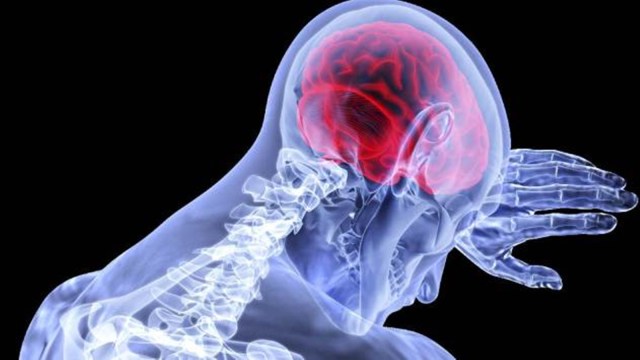 Stress, Dr Gupta explains, causes the heart to work harder and increases heart rate, blood pressure, sugar and fat levels in the blood. (Representational image/File)
Stress, Dr Gupta explains, causes the heart to work harder and increases heart rate, blood pressure, sugar and fat levels in the blood. (Representational image/File)Looking at Akshay teaching meditation techniques to his peers, giving motivational talks and creating boundaries in his work life to spend quality time with his family, you wouldn’t guess that he has battled the worst trauma anybody could imagine. The 28-year-old from Madhya Pradesh has had four brain strokes already but lives each day with a bounce and is determined to fight an uncertain future. “I am not an escapist anymore. Now I know how to take care of my mental health and don’t tie myself with knots of anxiety,” says the techie, whose stroke was brought on by extreme stress.
Akshay could not process the emotional troughs of losing his father, breaking up with his partner and managing his loneliness during the Covid years. What began with panic attacks gradually pushed him towards hyper-anxiety, sleeplessness and post-traumatic stress disorder (PTSD), something that studies have shown can raise your risk of brain strokes by 59 per cent.
Akshay is one of many young Indians, who are experiencing brain strokes at an early age. A recent study in Scientific Reports has said that the prevalence of stroke has increased by 50 per cent over the last 17 years in India. At present, one in four people are at a risk of getting a stroke in their lifetime. A new analysis from the Global Burden of Disease, Injuries and Risk Factors Study (GBD), 2021, flagged brain stroke alongside Alzheimer’s disease as responsible for increasing the number of those living with or dying by 18 per cent in 30 years.
How stress triggers brain strokes
Dr Praveen Gupta, principal director and unit head, neurology at Fortis, Gurugram, wasn’t surprised when Akshay consulted him. “Every day, I see at least two patients with strokes, who are less than 40. Their triggers are always the same, stress, overwork and anxiety topping the list followed by obesity and sleep apnea. Recently, I had a 12-year-old patient who had suffered a stroke,” he says, adding the case numbers have increased in the last two years.
Stress, Dr Gupta explains, causes the heart to work harder and increases heart rate, blood pressure, sugar and fat levels in the blood. It stimulates the body to produce more stress hormones, all of which results in inflammation, damage and tear to lining of blood vessels and clot formation with platelets rushing to cluster together. A dislocated clot can travel to the brain and cause a stroke. “Akshay’s anxiety levels were so high that his body was in permanent crisis mode, resulting in sudden spikes in blood pressure and heart rate,” he adds. Even a slight increase in stress and anxiety levels may raise stroke risk, according to a study by the American Heart Association. Researchers followed more than 6,000 people over 22 years and found that those with the highest stress levels were 33 per cent more likely to have a stroke than those who felt less anxious or stressed.

Another reason behind brain strokes among the young population is homocysteine, an amino acid which clots the blood faster. “High levels of homocysteine have a correlation with moderate to high anxiety levels. You could be lacking certain B vitamins too,” says Dr Gupta.
A history of trauma
So devastated was Akshay by his father’s death in May 2019 that he bottled up his emotions and left his hometown, taking up a job in another city. But that distancing plunged him further into loneliness. “Everyone had someone to grieve with. I was all alone and my emotions were all over the place,” he says. Such was his need for companionship that he entered a relationship all too soon. That provided him some emotional relief. Which is why when he broke up with his partner, he crumbled all over again. This was the time when he showed classic symptoms of PTSD, having nightmares about his father and waking up all sweaty and breathless. “My heart pounded so hard that I consulted a cardiologist in August 2020. He put me on anxiety medication for two months. But then all hell broke loose. Apart from taking classes and interacting with my students online, the lack of human contact meant I plummeted once again,” recalls Akshay.
By February 2021, he needed a psychiatrist, who recommended antidepressants and sleep medication. In April the same year, he had COVID-19. His D-dimer test, which indicates blood-clotting problems, was double than normal. This was the first red flag. “Some people with COVID-19 develop abnormal blood clots, including in the smallest blood vessels. And Akshay anyway had older triggers,” says Dr Gupta.
The second red flag was September 2021 when Akshay had an episode of slurred speech, which his psychiatrist misdiagnosed as a panic attack. On October 9, 2021, Akshay had a blackout, his first stroke. But since he revived in a few seconds, he reckoned he had collapsed out of sheer exhaustion, not uncommon among those recovering from a bad bout of COVID. Just three days later, he had a major stroke. He felt dizzy, blacked out and lost sensation in his right limbs. “I was riding a bike that day and just got saved in the nick of time. My friend rushed me to a neurologist and an MRI showed two clots,” says Akshay. He had had an MCA (middle cerebral artery) stroke. “This supplies a large part of the frontal, temporal and parietal lobes of the brain, which control many functions, including movement, sensation, coordination, and language,” says Dr Gupta.
Akshay returned to his hometown and it took him a good two-and-a-half half months to get the sensations back in his body. But he had to give up his teaching job as he could not speak fluently.
Recurrent strokes
After recovery, Akshay took up a job as a content moderator in a social media company. For two years, nothing happened, his anxiety was under control and he was gradually weaned off medication. A company in Gurugram offered him a job that he was excited about and he decided to move there permanently. But on January 31 this year, Akshay had an episode of vertigo. Tests showed minor strokes and he was given blood thinner injections for four days.
“But on February 2, I felt anxious, dizzy and thought my head would explode. The brain scans showed two clots and I resumed blood thinner injections for six days. Exactly ten days later, on February 12, I had a blackout at a mall and slurred again. This lasted 10-15 seconds. He put me on anticoagulants and increased the dosage of other medication. Then, on March 9, I slipped while trying to get off a train at my hometown. I was again unable to move my right hand and leg. I just lay in hospital for five days and the vertigo was constant,” says Akshay, who decided to consult Dr Gupta in Gurugram.
Dr Gupta found the real problem — Akshay was now becoming resistant to medication. “In such cases, we have to keep rotating and changing the medication. Normally, when strokes happen in young patients, there are issues with the heart, such as a hole, blood clots and deformed arteries. Fortunately, Akshay doesn’t have all of this and he will be alright now. But a stroke patient can have secondary strokes if the triggers like blood pressure, blood sugar, cholesterol, diet and exercise are not addressed aggressively,” he adds.
Now Akshay is on double blood thinners which will prevent clotting by two mechanisms. He is also on mild hypertension medicines, statins and Clonazepam to relax his brain and help him sleep better.
“However, now I have a more holistic approach to my health as medication can only prevent a crisis but a lifestyle change can stop me from getting to the edge in the first place. I have a lot of green vegetables, avoid high cholesterol diets and exercise for 30 minutes daily. I do not smoke and sleep adequately,” says Akshay, who is learning to prioritise himself over his problems.
Apr 05: Latest News
- 01
- 02
- 03
- 04
- 05


